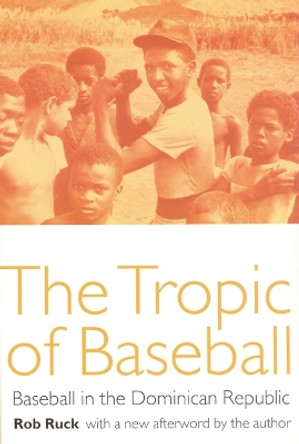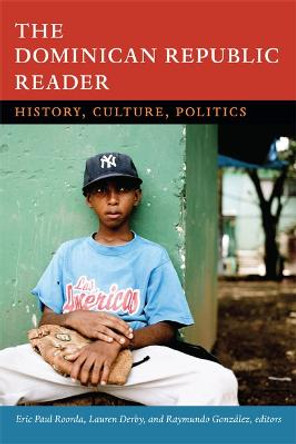Description
How Dominicans contribute to Major League Baseball and what they receive in return.
From Juan Marichal and Pedro Martinez to Albert Pujols and Juan Soto, Dominicans have long been among Major League Baseball's best. How did this small Caribbean nation become a hothouse of baseball talent? To many fans, the answer is both obvious and disconcerting: pro teams use their riches to develop talent abroad, creating opportunities for superhuman athletes and corrupt officials, while the rest of the population sees little benefit.
Yet this interpretation of history is incomplete. April Yoder traces how baseball has empowered Dominicans in their struggles for democracy and social justice. While the dictatorship of Rafael Trujillo saw the sport as a means of cementing its power at home and abroad, the Dominican people fashioned an emancipated civic sphere by seeing their potential for democratic success in their compatriots' baseball success. Later, Dominicans articulated demands for democracy, economic opportunity, and civil rights through successful calls for public support of amateur and professional baseball. Today, Dominicans continue to demand that incentives for the baseball industry foster human as well as economic development. A revelatory and innovative history, Pitching Democracy restores agency to the Dominican people and honors their true love of the game.
About the Author
April Yoder is an associate professor of history at the University of New Haven.
Reviews
Enriched by Yoder's passion for the sport and extensive knowledge of Cold War Latin American politics, this is a detailed study of the links between sport and social change. * Publishers Weekly *
In Pitching Democracy, Yoder reveals how Dominicans have formed their own meaning around baseball, not merely as a measure of individual success but as a reflection of their society and democratic ideals. The book shows that baseball is hardly a cultural imperialist US import: the sport has its own long history in Dominican society, producing major leaguers as well as national identity and pride wherever Dominicans reside. * Current History *
Scholars have perhaps not looked closely enough at the details of the relationship between baseball, its fans, the Dominican government, and hopes of democracy. In her extensive use of newspaper articles, government and sports ministry-based archival materials, political cartoons, and interviews and oral histories, she shows how a deeper dive into public discussion of sport and the metaphors of baseball, fan expectations and behaviors, and players and their investments in their own country's resources tell a different story than has been offered scholars of either baseball or the Dominican Republic. . . . Yoder does impressive work bringing these intertwined narratives together and providing evidence of the value of sport history to larger questions of political leadership, democracy, and development. * Hispanic American Historical Review *
Yoder's work is a shining example that baseball promotes dreams of democracy and merit, [and the book] provides an excellent overview of how, through much effort and against many obstacles, a small nation can fight against political giants. * Journal of Sport History *
A thoughtful and engaging political history of the relationship between Dominican baseball and democratic development. One does not need to be a baseball fan (although it's a bonus) to appreciate it. * Journal of Global South Studies *
Book Information
ISBN 9781477326763
Author April Yoder
Format Hardback
Page Count 280
Imprint University of Texas Press
Publisher University of Texas Press
Weight(grams) 513g
Dimensions(mm) 229mm * 152mm * 25mm








